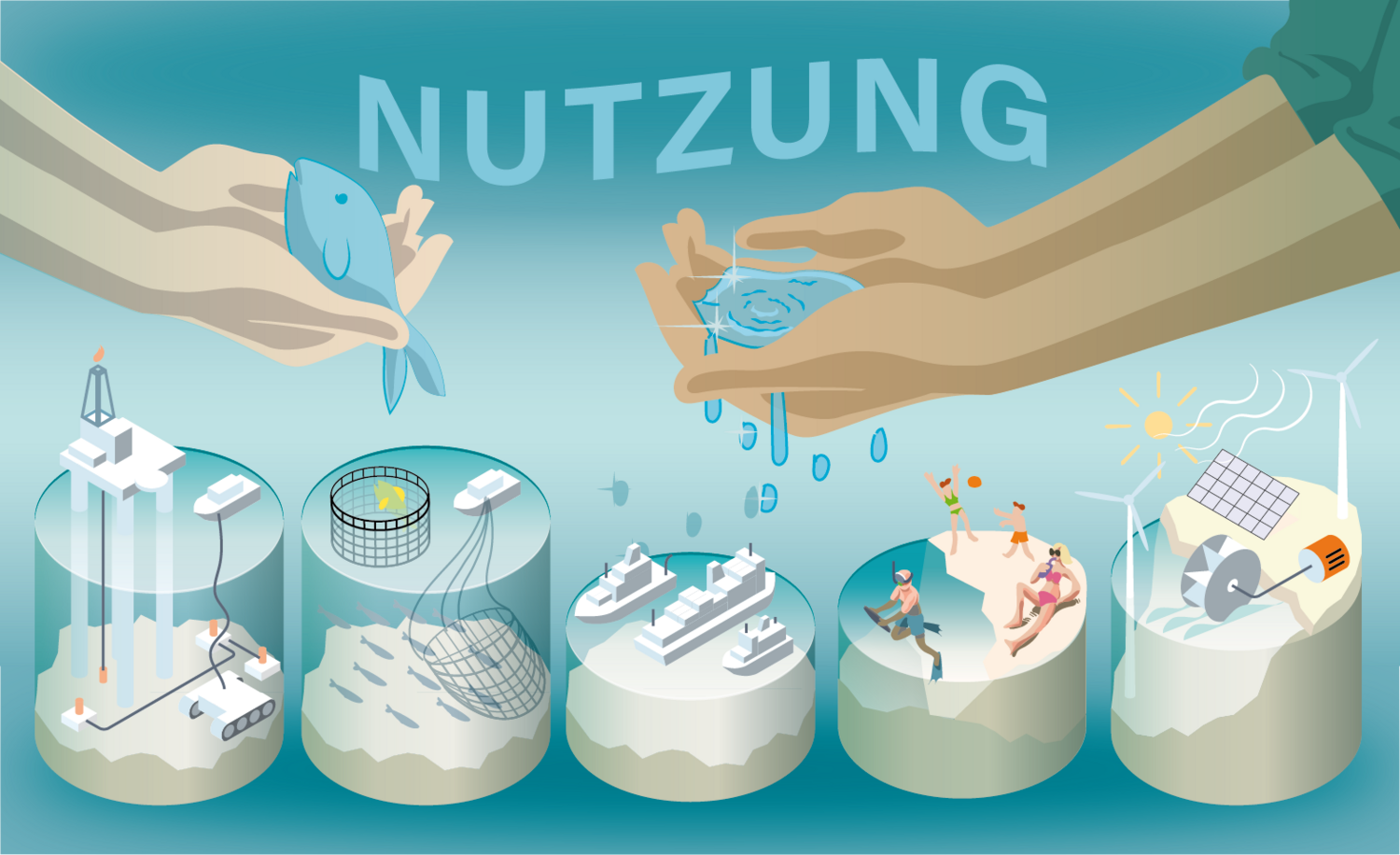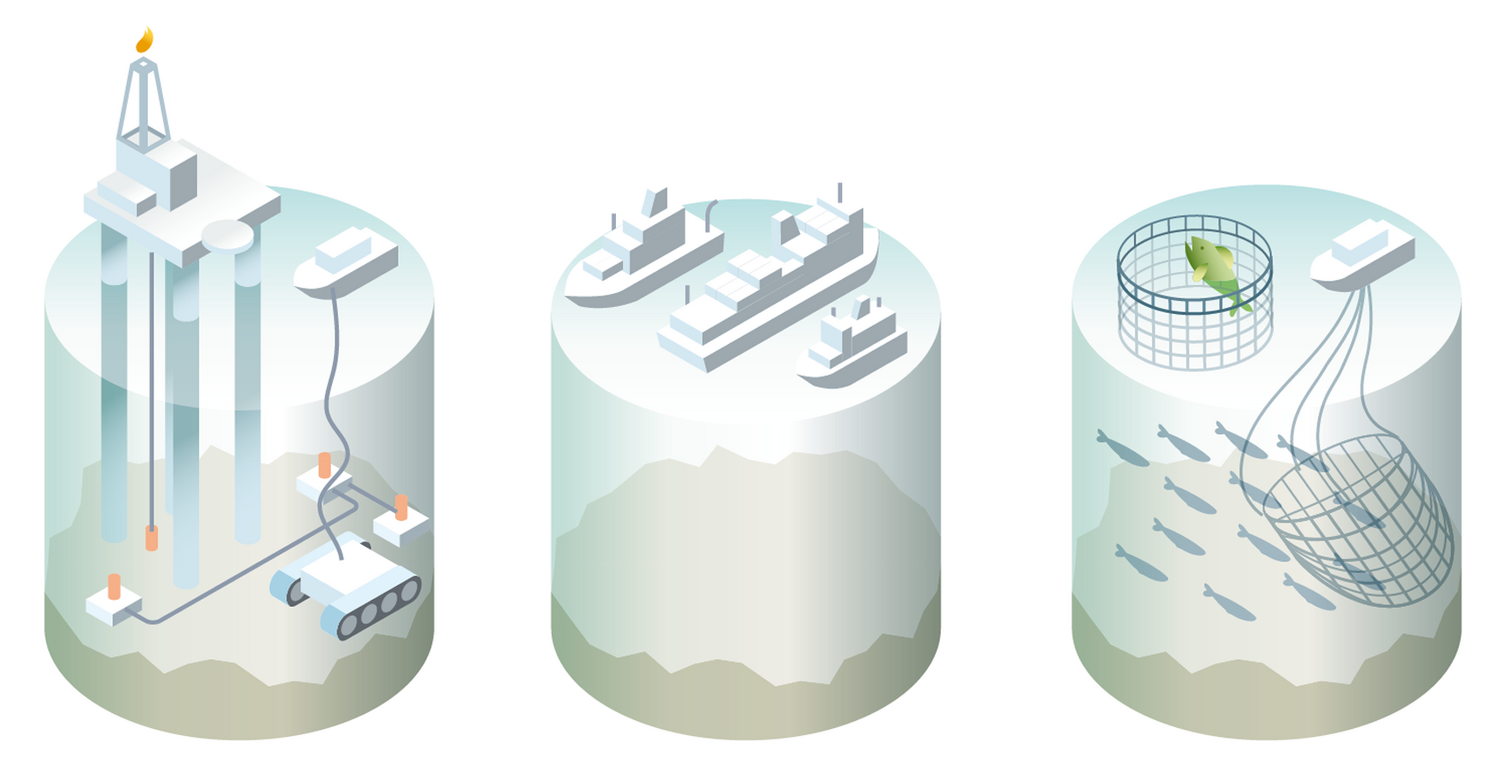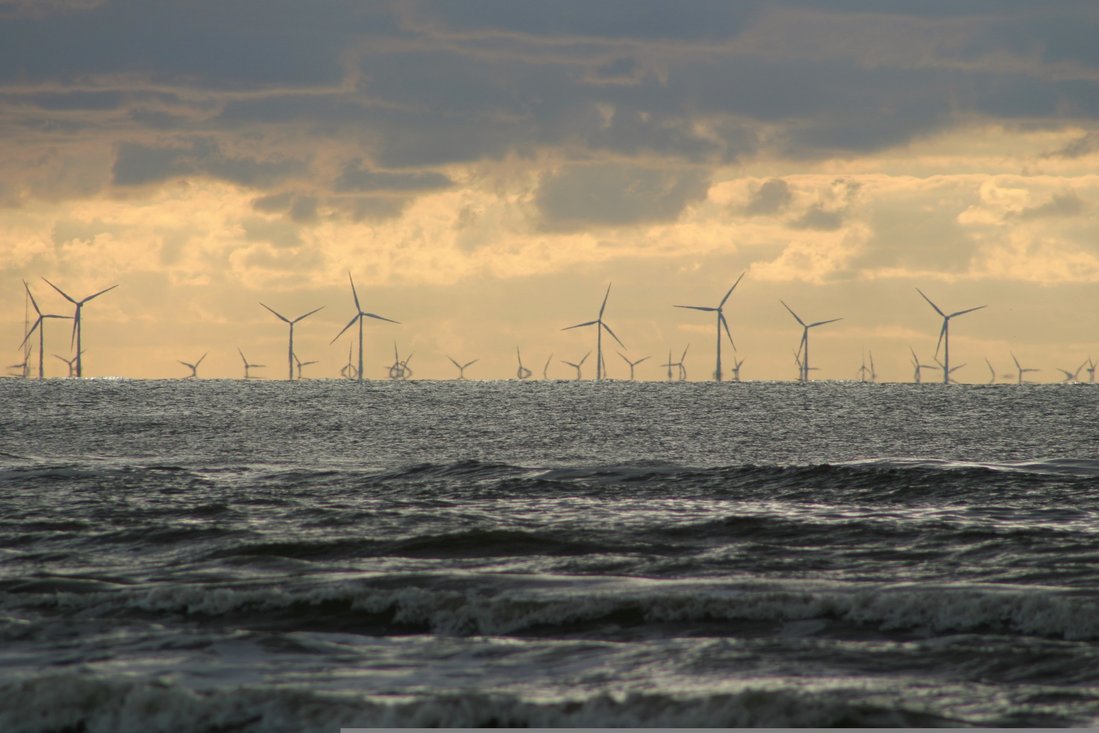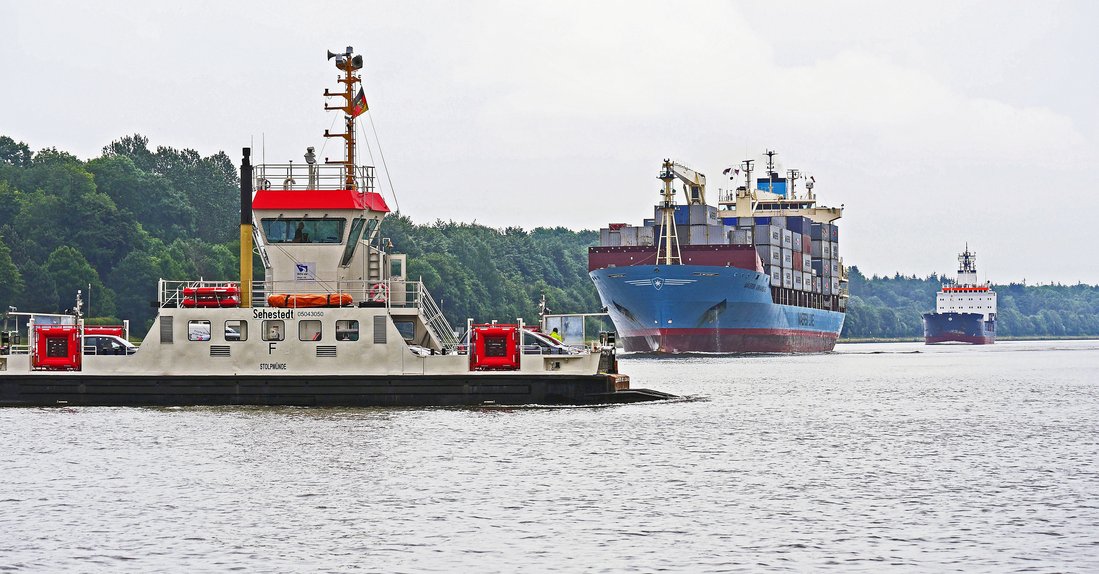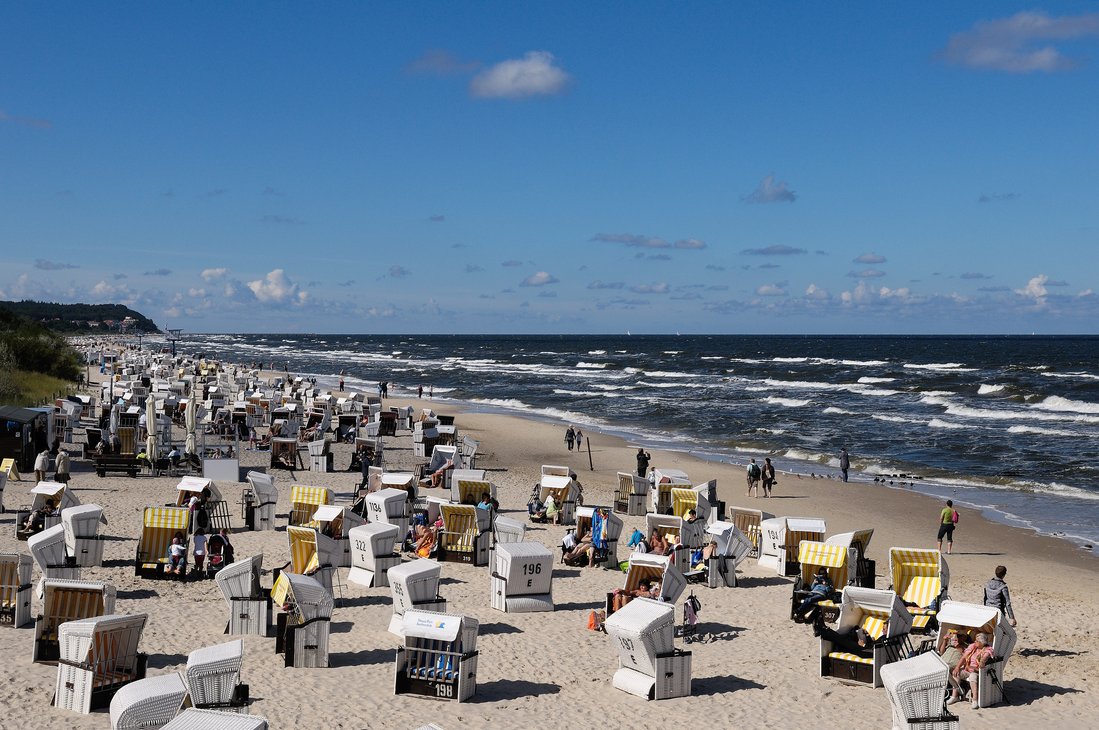For a long time, seas and oceans were considered inexhaustible, and for many millennia, this was true. People lived with and off the sea without depleting it. But that changed with industrialisation. It is now clear that, even though the world's oceans cover 71 per cent of the Earth's surface, they are finite. Their strength and capacity to regenerate are steadily diminishing.
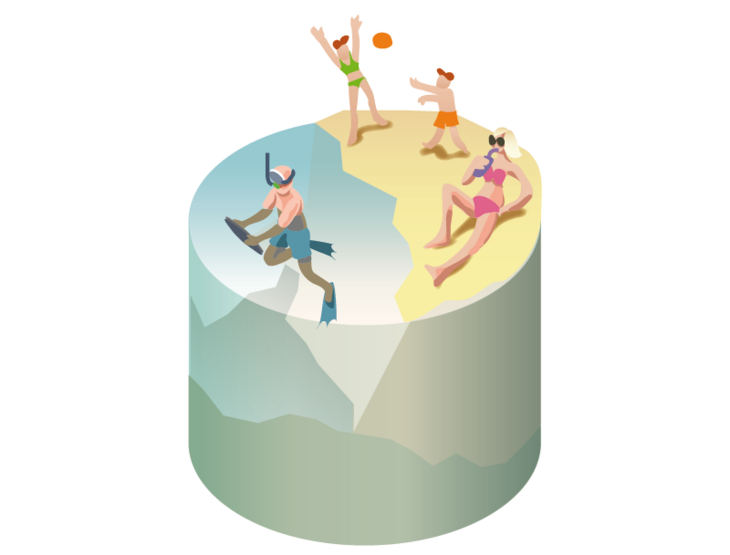
Nevertheless, our demands on the oceans continue to increase. Fishing - particularly industrial fishing - removes over 100 million tonnes of fish from the world's oceans each year. At the same time, we are extracting natural gas and oil from the deep seabed via offshore drilling platforms and constructing vast offshore wind farms. The number of cargo ships transporting goods and raw materials across the seas is steadily growing. Additionally, we seek relaxation on beaches and enjoy activities like surfing, sailing, diving, kitesurfing, and going on cruises.
In short, the world's oceans provide us with food, energy, transport routes, mineral resources, and recreation. Furthermore, we look to the seas to help address the climate crisis by storing sequestered carbon dioxide in deep layers of rock or by artificially enhancing their natural capacity to absorb carbon dioxide.
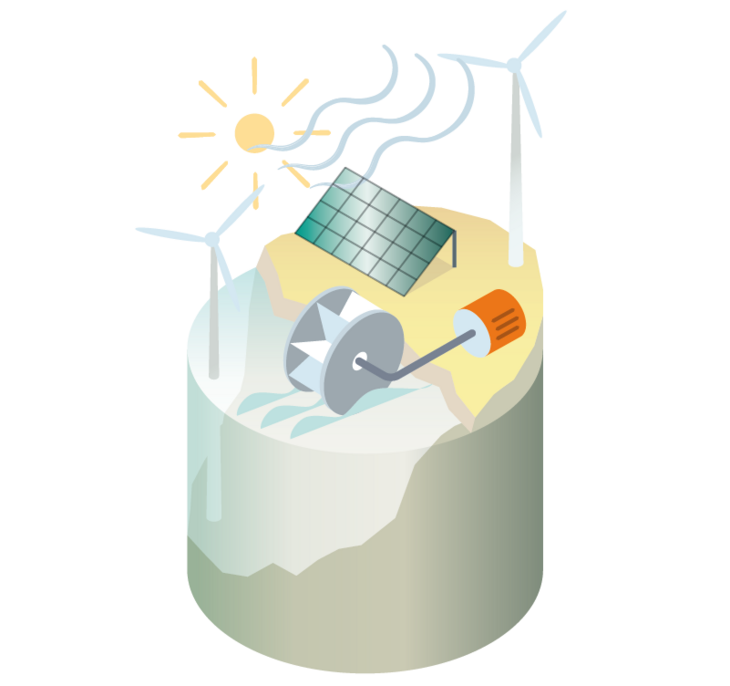
This wish list for the ocean could go on and on. However, the ever-increasing exploitation of the oceans' diverse resources is accompanied by dramatic losses in marine biodiversity. Key habitats have already been destroyed, and valuable ecosystem functions have been lost in many regions. Additionally, the problems facing the oceans as a result of overexploitation are further intensified by pollution and climate change.
Yet we are not powerless in the face of these challenges. To address them, a fundamental shift in our thinking and actions is essential. Ideals and values must come to the fore that emphasise the importance of healthy and functioning marine ecosystems. The term ‘value’ here can certainly be understood in economic terms as well. Healthy marine ecosystems provide humans with essential services, such as coastal protection and food, which would otherwise come at a high cost.
It makes sense to manage coasts, seas, and oceans in an ecologically responsible way that combines the protection and restoration of marine ecosystems with sustainable use, ensuring viability for both today's society and future generations. Numerous initiatives already support sustainable use, for instance, by aiming to intensively use certain marine areas for diverse purposes, while reserving others for environmental and species protection. By 2030, the aim is to place 30 per cent of marine areas under protection or effectively preserve them through other area-based measures.
In order to achieve this goal, marine issues and crises must no longer be considered in isolation. Instead, modern marine management requires cooperation across themes, sectors, and stakeholders, with transparent decision-making processes that involve policymakers, businesses, scientists, as well as all population groups who may be affected by the potential impacts of these decisions. A Herculean task for society as a whole.



